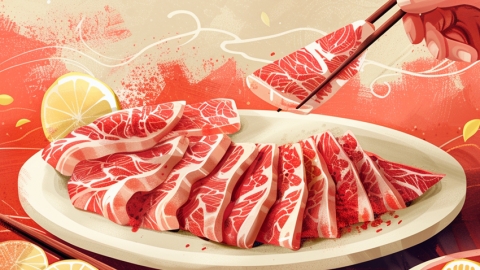Can I drink Rehmannia glutinosa (Shu Di Huang) after eating lamb?
Generally, if there are no unusual discomforts, it is usually fine to consume prepared rehmannia (Shu Di Huang) after eating lamb. However, individuals with abnormal body constitutions or digestive issues typically should avoid it.

In traditional Chinese medicinal cuisine, combining prepared rehmannia with lamb to make soup can nourish yin, strengthen the spleen, and replenish energy, making it an ideal tonic for autumn and winter. For example, the traditional medicinal soup containing prepared rehmannia, angelica (Dang Gui), ginger, and lamb has the effect of simultaneously nourishing both yin and yang. In this medicinal dish, prepared rehmannia nourishes kidney yin and is slightly warm in nature, thus not causing excessive dryness; lamb and angelica mainly function to warm yang. Therefore, after eating lamb, drinking an appropriate amount of soup containing prepared rehmannia typically does not cause adverse effects on the body.
However, it should be noted that for individuals with a hot constitution or excessive internal damp-heat, lamb and prepared rehmannia are both warm in nature, and continuous consumption may exacerbate internal damp-heat, leading to discomfort such as dry mouth and throat or constipation. If you have indigestion or a weak spleen and stomach, consuming a large amount of lamb followed immediately by prepared rehmannia may increase the burden on the gastrointestinal tract and cause indigestion. Additionally, as prepared rehmannia is a traditional Chinese herb, its use should follow medical advice.
Each person's body constitution and health condition are different, and individual reactions to medicinal diets may vary. Therefore, it is advisable to consult a professional TCM practitioner or nutritionist before consumption.




